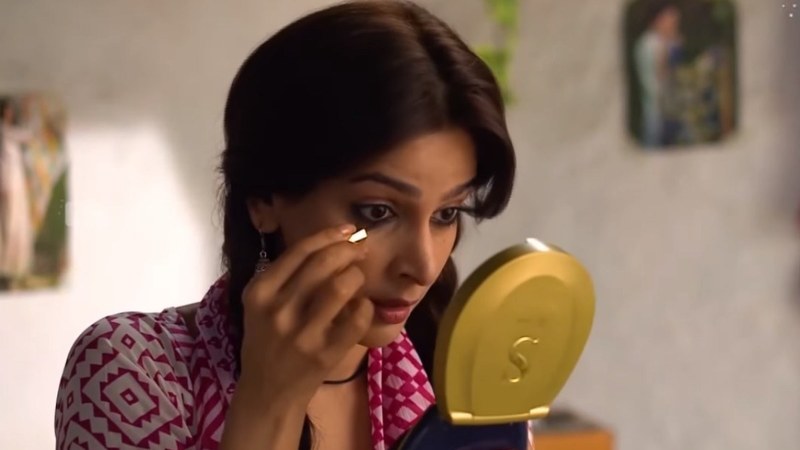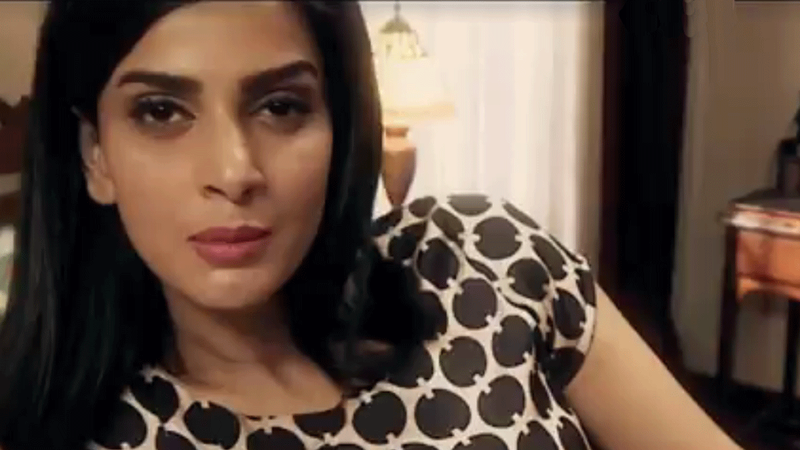By taking liberties with her story, Baaghi might just fail Qandeel Baloch
Not every woman can be a Khirad or a Kashaf or an Anmol, some are Fouzia Batool.
She is an unlikely heroine for an Urdu drama, not the kind to sit and suffer in patient silence nor is she the kind to fade away in dignified obscurity. She is a true rebel.
Loosely based on the tragically short life of Qandeel Baloch, the social media phenomenon who shot to fame with her scandalous YouTube videos, Baaghi shows us how Fouzia became Qandeel and what led to her murder.
What works so far
In the series' first eight episodes, Fouzia sees the way women are treated by the men around her and is determined not to suffer the abuse and violence she sees meted out to married women like her elder sister.
When her brother tries to marry her off to his good-for-nothing brother-in-law, she finds an escape route in the charming Abid. In a desperate but clever move, she runs away to hide at the Chaudhry’s haveli and manages to persuade her family to marry her to Abid.
Their relationship blooms at first: full of love and passion, but falters and fizzles under the usual strains of married life. Despite all his declarations of love, Abid gets bored after the birth of their first child and begins an affair with another local girl called Ruby.

“Thujay kis baat ki akarh hai? (Why are you so proud?)," he demands. ”Mamuli si aurat hai tu, teen bolon ki mohtaj hai tu!" (You're an ordinary woman, at the mercy of three words! (i.e. talaq or divorce) He threatens her, angry, abusive and controlling, just like all the other men Fouzia had always wanted to avoid.
However, mamuli is something Fouzia is determined never to be.
Saba Qamar gives us yet another brilliant performance, capturing the essence of this character, wearing Fouzia’s brash defiance and effervescence like second skin.
No matter how foolish or misguided, her courage and quick thinking force an almost begrudging admiration even from an audience used to more “noble” heroines. Fouzia is not the typical bholi larki so loved by Pakistani audiences, but despite the flash and fire of her personality, Saba Qamar manages to give this character just enough vulnerability to draw the audience in to empathise with her rather than root against her.
The surprise package though is director Sarmad Khoosat’s turn as Fouzia’s bullheaded, uncaring brother. Khoosat’s performances in front of the lens often fall prey to grandstanding, but this more controlled performance is much more effective.
Ali Kazmi is stellar as the feckless, inconsistent Abid, sometimes a charming rogue, sometimes a loving husband and then an abusive fiend. He never fails to impress. He matches Saba Qamar moment for moment and the intensity between them makes this on-and-off romance fascinating to watch.
Baaghi is bolstered by a lot of strong performances from stalwarts like Saba Faisal, Simi Raheel and Irfan Khoosat to name a few. The surprise package though is director Sarmad Khoosat’s turn as Fouzia’s bullheaded, uncaring brother. While his skills behind the camera are undeniable, Khoosat’s performances in front of the lens often fall prey to grandstanding, but this more controlled performance is much more effective.

As with most biopics or well-known stories, the makers must rely on strong characterisations and a sharp, well-crafted script to keep the audience’s attention on a protagonist whose fate has already been decided.
To their credit, the writers Umera Ahmed and Shazia Khan have given us fully fleshed-out characters with plenty of shades of grey, even lightening the mood here and there with some sly touches of comedy. Nadia Afghan’s character’s fears that her good-for-nothing brother might kill himself over Fouzia and Simi Raheel’s character’s resigned pride in her son’s good looks are all funny scenes but also highlight the way the men are held to different standards.
While Fouzia must be very careful not to declare an open preference for Abid, the men’s fancies and wishes are coddled and nurtured by their families. Even Abid’s affair is considered acceptable, something to be borne with patience while Fouzia’s decision to escape a forced marriage is constantly thrown in her face as a sign of weak character.
What's gone wrong
Baaghi is a well written script that has been woven into compelling prime-time viewing by director Farooq Rind. As a stand-alone product, Baaghi is pure entertainment but so far, it has followed an all too familiar path for stories about girls gone “bad”. There is no shortage of moralising fables on TV, from the recent Titly and Abroo to Mere Khawab Reza Reza and Saba Qamar’s own famous portrayal of Saman from Daam that map the same dreary 'karmic' trajectory of a rebellious, dissatisfied girl from a poor background who eventually drowns in her own ambition.
Read more: Qandeel's family gave us complete creative liberty to tell this story, say Baaghi's writers
This is where the serial falls short. By changing and taking liberties with Qandeel’s real story, the writers miss a great opportunity to open a discussion on what motivated Qandeel to be such a 'Baaghi'.
In Qandeel’s interview with Images, she insisted that she was forced to marry a man whom she described as an “animal”. By softening an abusive, forced marriage into a failed romance, the writers have taken away the deep, visceral impact that the forced marriage must have had on a 17-year-old girl. A failed romance implies consent, even some sense of hope and happiness rather than the misery and pain that Qandeel described.
By softening an abusive, forced marriage into a failed romance, the writers have taken away the deep, visceral impact that the forced marriage must have had on a 17-year-old girl.
In the “fictionalised" account we are watching, Fouzia 'brought shame' on her parents by disappearing from her wedding, whereas in reality Qandeel actually showed up and followed her parents' wishes even if she rebelled later.
By conjuring up the unreliable ashiq/husband in Abid, the authors are continuing the time honoured drama tradition of blaming individual men like Abid for everything, when essentially it was social structures ─ the system of early marriages and the lack of resources and educational opportunities ─ that were stronger contributors to Qandeel’s situation.
The caveat that this is a “fictionalised account” may be used as a cop-out but it’s a weak one if it doesn’t give the audience an idea of the impetus behind Fouzia’s transformation to Qandeel.
Additionally, Baaghi suffers from a lack of authenticity.
In eight episodes, there is not a single scene or dialogue which tells us how recent this story is and how much technology impacted Fouzia's life and decisions.
Let’s compare this with Udaari, Sadqay Tumhare, Dillagi or any recent drama and we can tell the time period because of the styling, clothes or some small reference to a current event or contemporary music. In an era where even a poor peon has a mobile phone, technology is remarkably absent in this drama, giving it a dated look at times.
In eight episodes, there is not a single scene or dialogue which tells us how recent this story is and how much technology impacted Fouzia's life and decisions.
Qandeel may have come from a poor, backward, uneducated family but the rise of social media levelled the playing field for her in a way that would have been impossible before the internet. There was something very confident, very modern about her that seems to be missing from the script at times but hopefully, that will be addressed in later episodes when she gets some internet access?
From the promos for next week, it seems as if Fouzia’s only aim is to be a model, but the actual Qandeel claimed that she worked hard to get an education: learning fluent English, getting her matriculation and her bachelors after leaving her husband.
Again, this omission reduces Qandeel’s aims to better herself to just an attention seeker, looking for quick money. While its certainly true that Qandeel could not distinguish between fame and notoriety, she was much more than the sexy, silly image she projected.
Which begs the question: why fictionalise an already interesting story?













Comments